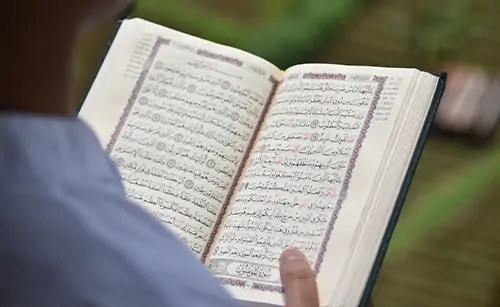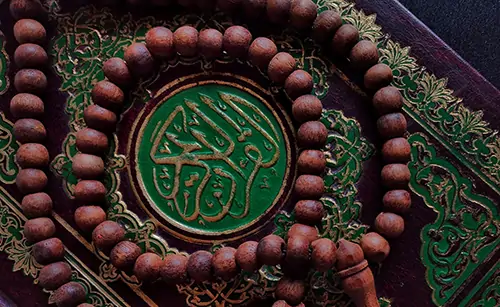How to Choose the Best English Translation of the Quran- A Guide

Allah revealed the Holy Quran to Hazrat Muhammad (SAW), making it the noblest book in Islam. Arabic was chosen because it is considered the most suitable language for conveying the Quran’s message. It is a difficult language and this language barrier does not let people understand the deep context of the Quran. So, to remove this barrier, experts from different regions and languages translated it into their native languages, including English. With ample options, choosing the perfect English Quran translation becomes a tough duty, but this blog post aims to help you choose the best one. So, before moving to the key factors let us tell you about the Quran translation first!
Quran Translation

You will be surprised to know every word in the Quran holds various meanings. To empower our statement, we need help from an example, the Quranic term 'kāfir' has been translated in multiple ways, such as 'disbeliever,' 'infidel,' 'rejecter,' 'atheist,' and 'ungrateful. Some words in the Quran are said to have up to 50 different meanings. This is why accurate translation is essential. According to the University of Pennsylvania, the Holy Quran has been translated into 114 languages, indicating a high demand for translations. Now the question is, how to choose the perfect English Quran translation, the following content explains it!
Key Factors To Consider
Let us know if you still have any queries regarding the Quran translation. It’s time to move ahead and shed some light on the key factors when selecting an English Quran translation:
Translator's Credentials
Just as job seekers today are expected to have at least a master’s degree, a Quran translation should ideally be created by someone with a solid academic background and credentials, a key factor in the precision and caliber of the translation is the translator's training and expertise. Seek translators with a solid background in Arabic language and Islamic studies. Ideally, the translator should have studied and interpreted the Quran for years to develop a deep understanding of its subtleties and complexities.
Furthermore, deliberate over the translator's standing within the Islamic academic community. A trustworthy and accurate translation is more likely to have been created by a translator who is well-respected and acknowledged by other academics.
Translation Approach
The Quran may be translated using various methods by different translators. While some choose to be as interpretative as possible, others might want to be as literal as possible. Think about your preferences and the degree of specificity you require.
A literal translation may convey the original Arabic text more accurately. For someone unfamiliar with Arabic language and syntax, however, it may also be more difficult to grasp. The subtleties of the original text could be lost in an interpretative translation, even if it might be simpler to read and comprehend.
Cultural sensitivity is also a crucial factor to consider. A competent translation must have cultural allusions and refrain from assuming anything that might change the meaning of the source text.
Commentary & Notes
Commentaries or notes explaining challenging portions or cultural allusions are frequently included in English translations of the Quran which can improve your comprehension of the message of the Quran.
Decide whether you want a more condensed translation or one with several notes. A translation that includes a thorough commentary might be helpful if you are unfamiliar with Islam or the Quran. If you are already familiar with the Quran, you might want a translation with lower commentary.
Reviews & Recommendations
It is advisable to review evaluations and recommendations from Islamic scholars and community members before choosing a translation. Doing so might help you assess the correctness and caliber of the translation.
Additionally, you may go with well-liked and highly recognized translations in the Islamic community. However, keep in mind that popularity does not always equate to quality.
Personal Preference
It is time to discuss an essential aspect of choosing the perfect English Quran translation: personal preference. More factors fall in the list of personal preferences like the writer you trust, the sect you follow, etc.
Conclusion
Choosing an English translation of the Quran is a personal decision. You must choose a translation that deepens your spiritual knowledge and strengthens your bond with the Quran by considering these things and looking into other possibilities. Remember, the Quran is a timeless work of art, and every translation presents its message from a different angle. If you would like to learn more about Quran translations, do not hesitate to contact Awwal Quran.
FAQs
What is the difference between the Quran translation and Tafseer?
Some people consider them the same but they are not. One key difference between the Quran translation and Tafseer is the level of detail provided. The translation is just the meaning of every Quranic word or verse, while the Tafseer provides the background and deep meanings.
When was the Quran first translated into English?
The Quran was first translated into the English language in the 17th century. Surprisingly, the translator was a non-muslim and named the translation Alcoran. Most existing translations were produced in the 20th and 21st centuries.
Should I perform wudu before reading the Quran translation in English?
While performing wudu before touching the Quran is generally recommended, it is permissible to read an English translation without performing wudu.














